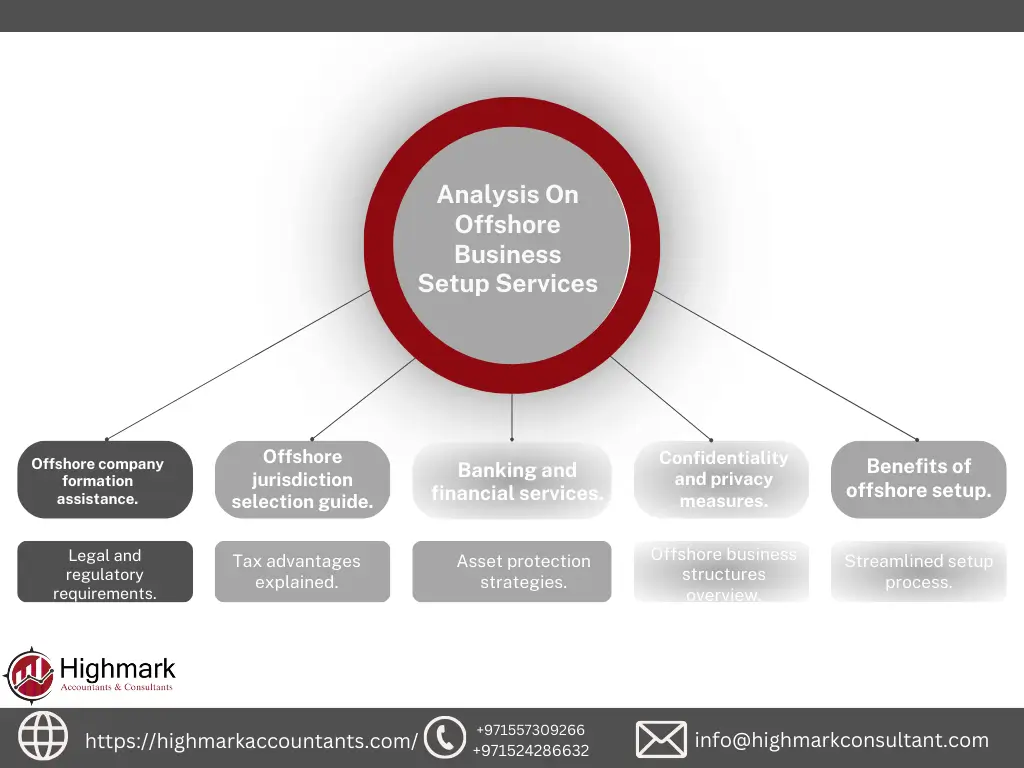Offshore Company Formations Case Studies: Actual Wins
Understanding Offshore Business Formations: A Comprehensive Overview to the Process and Benefits
Offshore business formations provide a strategic avenue for business owners seeking to enhance their company operations. These entities typically supply advantages such as tax obligation benefits, raised privacy, and durable property protection. Recognizing the details of choosing a territory, the formation process, and conformity demands is essential. As the landscape of global organization evolves, the ramifications of establishing an overseas firm warrant careful consideration. What steps should one take to browse this complicated surface?
What Is an Offshore Firm?
An offshore company is an organization entity integrated outside the territory of its owners' house, commonly in a nation with desirable regulatory and tax atmospheres. These business can serve numerous objectives, including asset defense, international trading, and wealth management. They are usually developed in jurisdictions called tax obligation havens, where corporate tax obligation rates are missing or reduced, and personal privacy regulations are rigorous.
Offshore firms might be possessed by people or various other company entities and can run in various fields, consisting of consulting, financing, and e-commerce. While they supply particular advantages, the lawful and regulative frameworks regulating overseas firms vary significantly by jurisdiction. Entrepreneur need to navigate these intricacies to guarantee compliance with both international and neighborhood legislations. Recognizing the framework and feature of offshore firms is necessary for people considering this choice for service procedures or property monitoring.
Benefits of Creating an Offshore Company
While the decision to develop an offshore business might originate from different strategic factors to consider, the possible advantages are compelling for numerous entrepreneur. One considerable benefit is tax optimization; several overseas territories offer positive tax obligation rates or perhaps tax exceptions, allowing firms to maintain even more revenues. Additionally, offshore companies commonly give improved personal privacy security, shielding the identities of shareholders and supervisors from public scrutiny.


Company proprietors might discover operational versatility, as overseas territories often have fewer regulatory obstacles, allowing structured management and administration. Jointly, these benefits make overseas business formations an appealing option for lots of looking for to broaden their organization perspectives.
Selecting the Right Territory
Selecting the proper territory for an offshore company is an important action in making best use of the advantages detailed earlier. Different aspects influence this decision, including tax guidelines, company legislations, and the general business atmosphere. Territories such as the British Virgin Islands, Cayman Islands, and Singapore are often favored for their favorable tax programs and robust legal frameworks.
It is crucial to consider the details requirements of the service, such as personal privacy requirements and regulatory conformity. Furthermore, the simplicity of working, consisting of the performance of business enrollment and financial centers, plays a substantial role.
Prospective proprietors must also assess the political stability and reputation of the picked territory, as these elements can impact lasting success. Ultimately, detailed research and expert examination are advised to ensure alignment with the firm's goals and to utilize the full capacity of overseas benefits.

The Offshore Business Development Refine
The overseas firm formation procedure includes a series of essential steps that need mindful planning and execution. People or services must choose a suitable jurisdiction that aligns with their goals, considering factors such as tax obligation benefits, personal privacy, and regulatory environment. Following this, the following action involves selecting the suitable service framework, such as an International Business Company (IBC) or Restricted Obligation Firm (LLC)
As soon as the framework is established, required files, consisting of an organization plan, recognition, and proof of address, have to be prepared. Engaging a respectable regional agent or provider can streamline this stage, ensuring conformity with neighborhood policies. After sending the called for paperwork to the relevant authorities, the formation process commonly culminates in the issuance of a certification of unification. This file develops the firm as a legal entity, permitting it to conduct service internationally.
Lawful Demands and Compliance
Recognizing the legal demands and conformity obligations is important for any individual wanting to develop an overseas business. Each jurisdiction has specific guidelines that must be complied with, which can consist of business registration, getting necessary licenses, and keeping neighborhood addresses. Offshore Company Formations. It is vital to select a signed up representative that can promote interaction with neighborhood authorities and warranty conformity with continuous coverage demands
Furthermore, several territories need the submission of annual economic declarations, along with tax obligation filings, even if the company does not produce go to this website earnings. Supervisors and investors need to be identified, with due persistance procedures frequently mandated to confirm their identifications. Failure to fulfill these legal responsibilities can lead to penalties or the dissolution of the business. Therefore, potential overseas firm proprietors should seek advice from with lawyers experienced in worldwide business legislation to navigate these complexities successfully and guarantee full conformity with all guidelines.
Tax Obligation Implications of Offshore Business
The tax effects of offshore firms existing substantial advantages that draw in numerous business owners. Comprehending click this link the associated conformity requirements is necessary for steering the intricacies of worldwide tax laws. This area will discover both the prospective advantages and the needed obligations associated with offshore service frameworks.
Tax Advantages Summary
Although offshore companies are frequently viewed with suspicion, they can provide considerable tax obligation benefits for people and companies looking for to optimize their economic techniques. One of the main benefits is the possibility for lower business tax rates, which can result in substantial savings. Many offshore territories offer desirable tax regimens, consisting of no or minimal tax on earnings, resources gains, and inheritance. Additionally, overseas firms can promote international business operations by decreasing tax obligation liabilities related to cross-border transactions. This framework might also allow tax deferral chances, allowing profits to grow without instant taxes. Eventually, these benefits add to boosted economic effectiveness and property security, making offshore companies an attractive option for savvy financiers and entrepreneurs.
Compliance Demands Clarified
Offshore companies may offer tax benefits, however they likewise include a collection of conformity demands that need to be very carefully browsed. These entities are subject to particular reporting responsibilities, which differ substantially depending upon the territory. Generally, overseas business need to keep precise financial records and submit yearly monetary declarations to abide by neighborhood policies. Furthermore, several jurisdictions require the disclosure of useful ownership to deal with cash laundering and tax obligation evasion. Failure to adhere to these compliance procedures can result in extreme fines, including fines and potential loss of organization licenses. Comprehending the local tax obligation laws and worldwide contracts is necessary, as they can impact tax obligation obligations and overall operational legitimacy. Involving with lawful and financial specialists is recommended to assure complete compliance.
Maintaining and Handling Your Offshore Company
Keeping and managing an overseas firm involves adhering to different continuous compliance needs necessary for lawful operation. This consists of thorough financial document keeping and an understanding of tax obligation obligations important to the company's territory. Reliable monitoring not just assures regulative compliance yet likewise sustains the business's economic wellness and longevity.
Recurring Conformity Needs
Ensuring ongoing compliance is vital for any kind of entity operating in the offshore industry, as failing to fulfill regulatory demands can lead to significant fines or even dissolution of the company. Offshore companies must stick to local legislations, which may include annual declaring of monetary declarations, payment of essential costs, and keeping a registered workplace address. In addition, business are usually required to designate a local agent or agent to promote interaction with authorities. Regular updates on adjustments in regulation or tax obligation demands are essential for conformity. Furthermore, adherence to anti-money laundering (AML) and know-your-customer (KYC) regulations is necessary. By preserving organized records and staying educated, offshore companies can ensure they stay compliant and reduce threats connected with non-compliance.
Financial Document Maintaining
Effective economic document maintaining is crucial for the successful management of any type of overseas company. Preserving thorough and accurate monetary records help in tracking the business's efficiency, guaranteeing conformity with local laws, and helping with educated decision-making. Business must carry out organized procedures for documenting income, costs, and deals to create openness and accountability. Making use of accountancy software program can improve this process, enabling real-time economic evaluation and reporting. Routinely evaluating monetary statements aids determine trends, evaluate success, and manage capital effectively. It is vital to safely store these documents to company website protect sensitive information and guarantee simple accessibility throughout audits or economic testimonials. By focusing on careful monetary document maintaining, overseas firms can boost functional efficiency and assistance lasting success.
Tax Commitments Overview
Recognizing tax obligation obligations is crucial for the proper monitoring of an overseas company, as it straight affects monetary performance and compliance. Offshore firms may undergo various tax obligation legislations depending upon their territory, consisting of corporate taxes, value-added tax obligations, and withholding tax obligations. It is essential for entrepreneur to remain informed about their tax obligation obligations, as failure to conform can lead to charges and legal issues. In addition, several offshore jurisdictions offer tax obligation incentives, which can greatly profit companies if browsed correctly. Involving a well-informed tax advisor or accounting professional focusing on worldwide tax obligation legislation can help guarantee that firms satisfy their responsibilities while maximizing their tax obligation approaches. Inevitably, attentive tax obligation administration adds to the overall success and sustainability of an offshore entity.
Often Asked Inquiries
Can I Open Up a Bank Account for My Offshore Business From Another Location?
The ability to open up a savings account for an overseas company from another location relies on the bank's plans and the territory's policies. Several banks offer remote services, however details needs might differ considerably between organizations.
What Are the Expenses Associated With Forming an Offshore Firm?
The expenses associated with creating an offshore business generally consist of enrollment costs, lawful and consulting expenditures, and recurring upkeep charges. These expenses vary significantly based on jurisdiction, intricacy of business framework, and specific solutions needed.
Are There Constraints on Who Can Be a Shareholder?
Restrictions on investors differ by territory. Some nations may enforce restrictions based upon race, residency, or business type - Offshore Company Formations. It's necessary for potential financiers to study specific policies relevant to their picked offshore place
How Long Does the Offshore Company Development Process Generally Take?
The offshore company formation process normally takes between a couple of days to numerous weeks. Variables affecting the timeline include territory requirements, paper preparation, and responsiveness of relevant authorities associated with the enrollment process.
What Occurs if I Fail to Abide By Neighborhood Legislations?
Failure to abide by neighborhood laws can cause serious penalties, consisting of fines, lawful action, or loss of business licenses - Offshore Company Formations. It may likewise damage the firm's track record and hinder future organization chances in the jurisdiction
An overseas firm is a business entity incorporated outside the jurisdiction of its proprietors' home, commonly in a country with beneficial regulatory and tax obligation atmospheres. One considerable advantage is tax obligation optimization; lots of offshore territories provide desirable tax rates or even tax obligation exceptions, enabling business to maintain more earnings. Overseas companies are commonly checked out with hesitation, they can use significant tax obligation benefits for services and people looking for to enhance their monetary techniques. Furthermore, offshore business can assist in international organization operations by lowering tax obligations connected with cross-border purchases. Offshore business may be subject to different tax obligation regulations depending on their territory, including business taxes, value-added taxes, and withholding tax obligations.